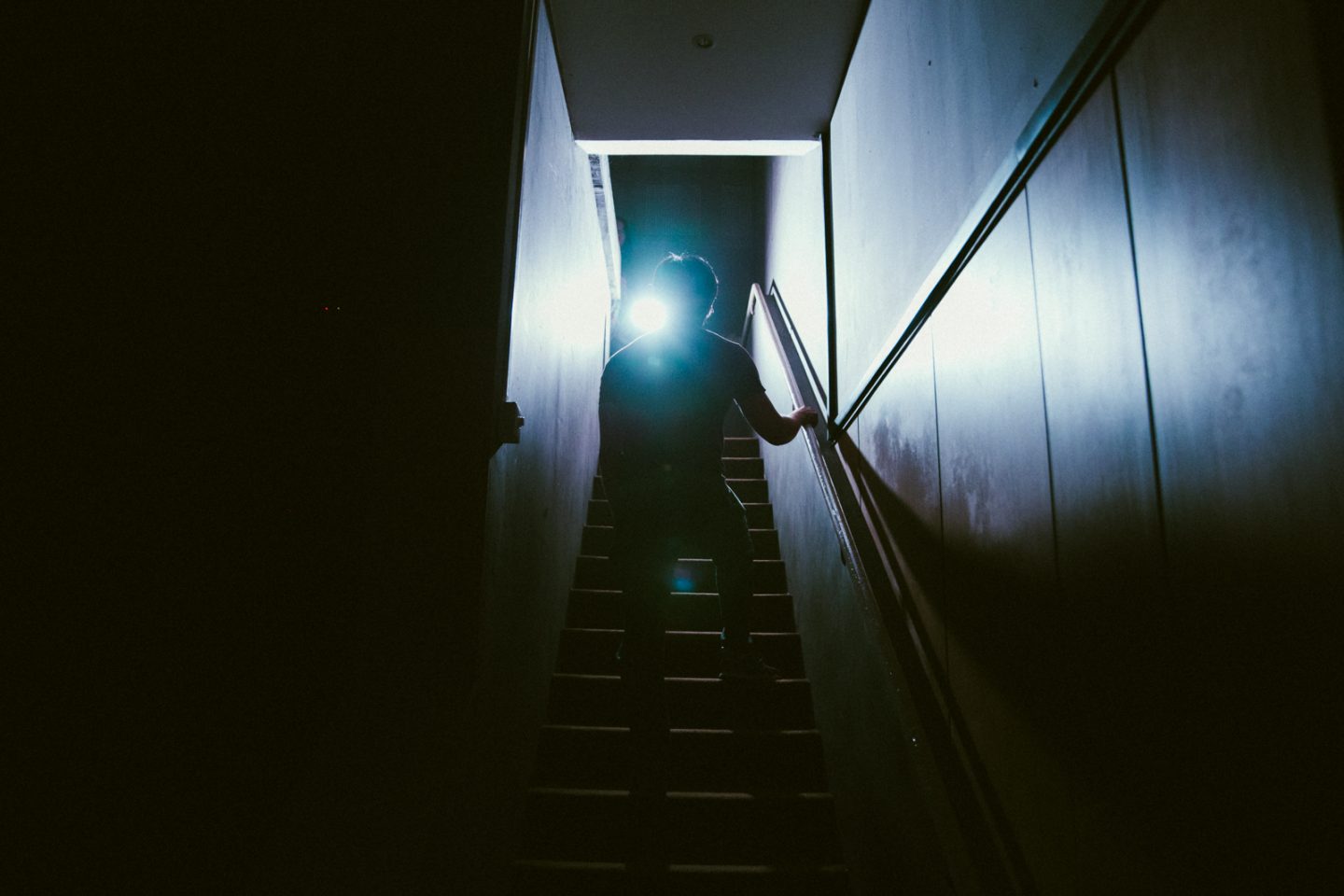I once believed that one day I’d change the world in a good, unselfish, non-superficial way.
But real life hit me hard.
I was overrun by a deep existential crisis. No, not the kind you feel in the morning when you’ve got tons of work in your in-tray, or if you’ve been dumped.
Life itself hurts. The thought, the realisation that no matter how you far you want to fly, you’ll just land in flames.
It sounds crazy to those who’ve never felt the monstrous grip of despair around their neck. Come on! Pick yourself up. Snap out of it, they say.
But no, friend. It’s not so simple. Antidepressants or personal manifestos won’t help.
Words often fail to describe the condition I feel my heart is in. It’s like all you ever want is to see things for what they really are, but you’re haplessly blind.
Something I’d learnt in freshman math: The responsible thing to do when given a formula was to make sure you know where it came from – trace the steps, if you will.
This meant hours of exercises in derivation which helped us to appreciate the computational software taught to us in the later years. “Always, always start from first principles,” my professors would say.
Learning the history of science is a big part of understanding science itself.
But still Christ came for me. That must mean something.
I thought I was being courageous by applying this to other things in life. Unveiling the fundamental “whys” and audaciously asking God to tear down everything that didn’t really matter.
To me, it was simply being responsible with my existence. But like a child who never outgrew the annoying habit of questioning everything, there comes a point when no adult, no book, and nothing on Google offered satisfying answers.
When you pray such bold, desperate prayers, you don’t realise you’re asking for agony. You seek a clarity oblivious to the masses. You search harder, dig deeper than others, through modern thought and ancient wisdom alike.
You tell yourself it’s the part of the journey. That it’ll refine your character, make you stronger, make sense eventually.
But you’re exhausted. Crippled. People terrify you. Society disgusts you. Your friends don’t understand.
Those who dare walk this road are repeatedly crushed. They bleed. They trudge for a while, then crawl. Many lose whatever faith they held in their youth. I must have – many, many times over.
Brutal honesty smashes your spirit into a million fragments. You lose all motivation to succeed. You stop caring. You suspend all belief in yourself, humanity and God.
Though we feel obligated to make sense of the universe, certain daring minds speculatively concede: The universe is not obligated to make sense to you.
In this closed system, people live their lives as exercises in futility. Most struggle to get by, wearily walking the well-worn path marked out by society. We’re enslaved by systems whose noble first principles are all but forgotten. Technology masters us. The strong exploit the weak. Youthful ideals birthed in ignorance wait to be crushed.
We want freedom, but that’s an illusion. We fight for impossible utopias. Meaning, exposed as completely subjective and arbitrary, evaporates into absurdity.
Ultimately, we’re enslaved by biology: Survive as long as possible before telomeres excessively shorten and time runs out. Privilege and the best healthcare regime might buy you a few years but it all seems pitifully insignificant. The mechanical cosmos march on unstirred, unaffected by your existence.
As modern thought continues to debate the nature of time, I find myself drawn to a certain point in time and space where Jesus finds a man – a beggar – born blind (John 9).
Even the Apostles made a spectacle of him. They grapple with the age-old problem of Evil, and the need to pin the blame on someone. Jesus corrects them without answering their questions. It’s not about you or your understanding. It’s about God’s will.
Jesus heals the blind man.
But though he came back seeing, he’s still a public spectacle and outcast. They drag him before learned, religious men who grill him with their theological structures. They make it about the Sabbath. They won’t accept his testimony. Insults are hurled at him (John 9:28). They implicate his parents. “You were born in utter sin!” they declare, before casting him out again.
And Jesus comes to him again, healing a deeper blindness.
Jesus heard that they had thrown him out, and when he found him, he said, “Do you believe in the Son of Man?”
“Who is he, sir?” the man asked. “Tell me so that I may believe in him.”
Jesus said, “You have now seen him; in fact, he is the one speaking with you.”
Then the man said, “Lord, I believe,” and he worshiped him. (John 9:35-38)
Likewise, He comes to me. Mysteriously. tenderly. When I find myself alone, begging and cast out, I find Him right there next to me – not as idea or concept, but as a Person who radiates real love, more overwhelming than anything else I’ve ever known. Whether I asked for it myself or not. Whether I understand or not.
He comes to me in ways the most learned, strictly religious, good and powerful people would never understand. I trust that He comes to them too, in ways hidden to me.
I’ve learnt that every soul is refined in a unique manner. But all I know is how He finds me, tells me to wash my eyes in the pool Siloam and I come back seeing.
I still can’t make sense of it. I feel cast out. I must have way more than two levels of blindness.
But now, though, I think He’s helping me see. I await the day He unveils one more level, when I can comprehend a new level of His love, truth and grace in all the cosmos.
I really don’t know about this existential thing. Friends tell me it’ll pass. The light will shine again, and I will once again feel the joy that’s eluded me for the longest time. I question whose sin brought me to this dark valley: Mine or someone else’s.
I’ve been here for the longest time.
All I know is how He finds me, tells me to wash my eyes in the pool Siloam and I come back seeing.
I still struggle through many, many sleepless nights. I read strange esoteric things maybe 10 people on earth actually care about. I cannot deal with romance or children. I struggle to believe without tracing first principles. I’m a fish out of water. I have an urge to disappear forever.
I often feel a walking spectacle: For rebellion, singleness, laziness. They think I’m edgy, stumbling and volatile – a walking bag of sin with a warning label. But still Christ came for me. That must mean something.
Yes, everything hurts. More than ever. But for once in my life, through broken lenses for now, I’m starting to see. As I rub my eyes and squint into the distance, there He stands smiling with another ball of mud-spit in hand.
And I know it’s just a matter of time before I walk to the pool again.









